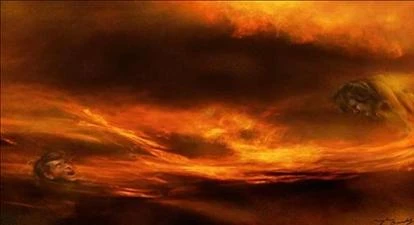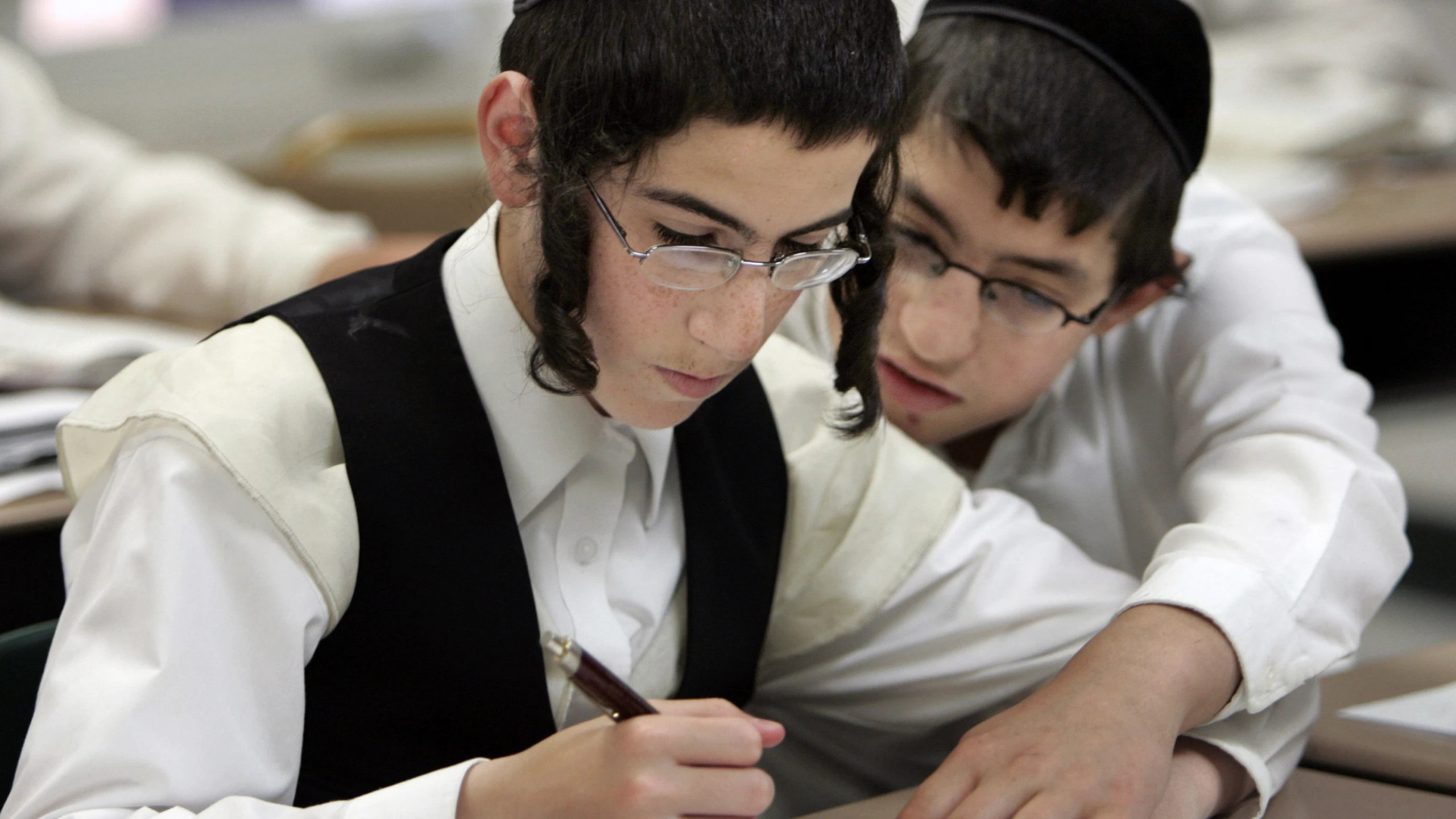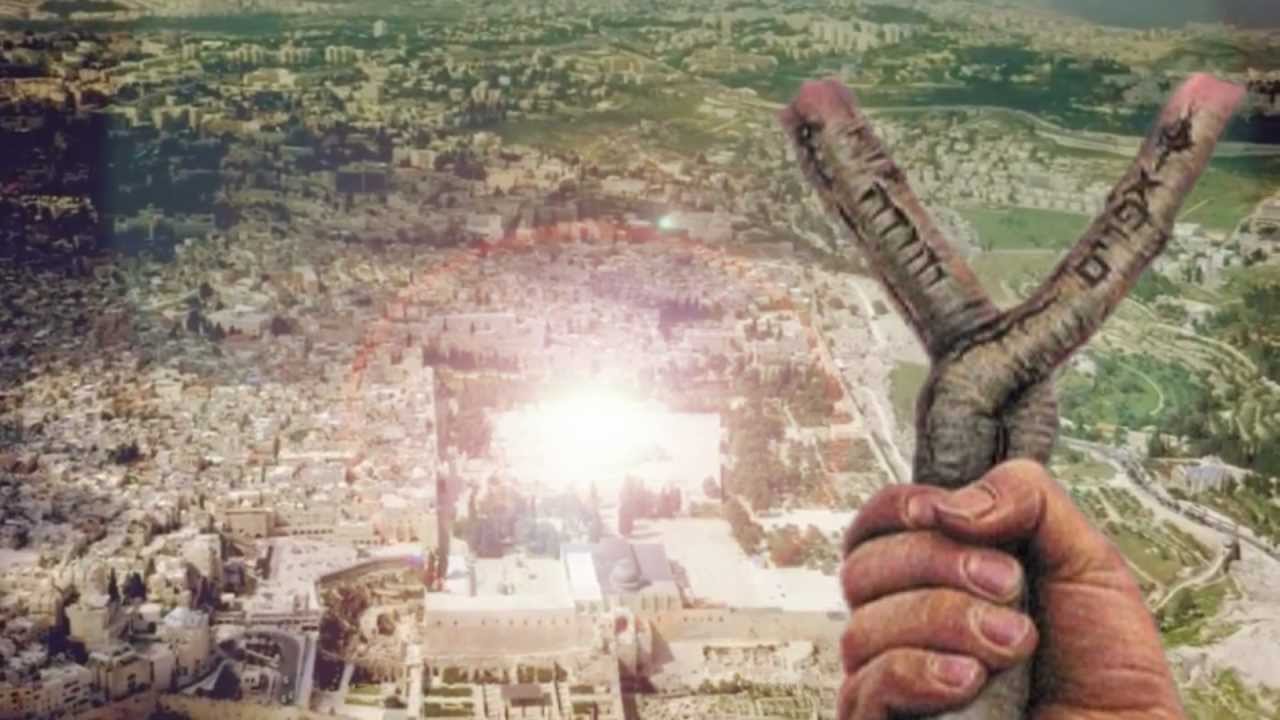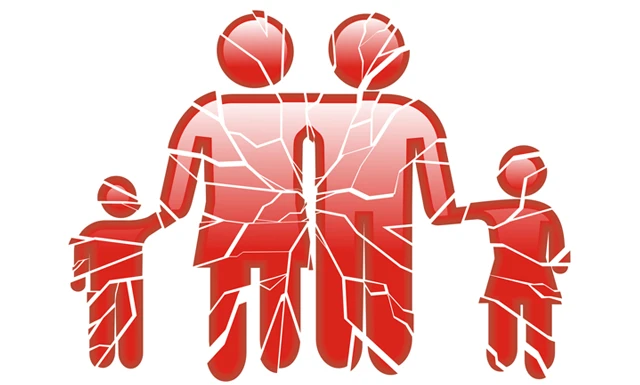Lost Souls
Jacob's Last Lecture
- August 23, 2012
- |
- 5 Elul 5772
Rabbi YY Jacobson
4508 views

Lost Souls
Jacob's Last Lecture
Rabbi YY Jacobson
- August 23, 2012
The Rabbi and his Driver
A renowned rabbi, a brilliant philosopher, was held in high regard by his driver, who listened in awe at every speech while his boss would easily answer questions about morality, ethics and philosophy.Then one day the driver approached the rabbi and asked if he was willing to switch roles for the evening's lecture. The rabbi agreed and, for a while, the driver handled himself remarkably well. When it came time for questions from the guests, a man in the back asked, "Is the epistemological view of the universe still valid in an existentialist world?"
"That is an extremely simple question," he responded. "So simple, in fact, that even my driver could answer that, which is exactly what he will do."
The Detached Teacher
The teacher was always so involved in the text he was teaching that he never looked up at his students.He would call on a student for translation and explanation, and -- without realizing it -- he often chose the same student day after day.
Out of respect, the students wouldn't point this out to him.
After being called on four days in a row, a student named Goldberg asked advice from his friends.
The next day when the rabbi said "Goldberg, translate and explain," Goldberg replied, "Goldberg is absent today."
"All right," said the rabbi. "You translate and explain."
The Final Lesson
There is an intriguing Midrashic tradition (1), that Jacob's final lesson with his beloved son Joseph just hours before he was kidnapped and sold into slavery dealt with a law concerning an unsolved murder case in this week’s portion, Shoftim.We are all familiar with the narrative. Joseph, who was 17 years of old at the time, was asked by his father to visit his brothers, who were shepherding the family flock near the city of Shechem. When the lad arrived in Shechem, his brothers kidnapped him and cast him into a pit; then they sold him into slavery to Egyptian merchants.
Joseph ended up working for an Egyptian dignitary, then spent 12 years in an Egyptian dungeon and finally became viceroy of that country (2).
Twenty-two years after Joseph was torn away from his father, the Bible relates (3), Jacob received word that he was alive, but he could not believe it. The Midrash relates (1) that since Joseph suspected that this might happen, he gave the emissaries a sign to demonstrate to his father the authenticity of the message: "Tell my father," Joseph suggested, "that when I left him 22 years ago we had just completed studying the laws of the calf that was brought as an atonement for an unsolved murder."
This, the the Midrash explains, is the meaning in the biblical verse that reads, "They told him [Jacob], 'Joseph is still alive and he is the ruler over all Egypt'; but his heart rejected it, for he could not believe them. However, when they related to him [to Jacob] all the words that Joseph had spoken to them, and he saw the wagons that Joseph had sent to transport him [from Israel to Egypt], then the spirit of Jacob was revived (3)."
The Hebrew term used for wagons ("agalos") can also be translated as calves. "When Jacob 'saw' the calves that Joseph sent," i.e., when he realized that this Egyptian leader knew the content of the last Torah lesson that Jacob taught Joseph, Jacob realized that this man was indeed his lost son Joseph.
An Unresolved Murder
What exactly is the nature of this law that Jacob taught Joseph? It is discussed in the book of Deuteronomy in this week’s portion and it goes like this:
"When a corpse is found fallen in the field in the land that G-d gives you to possess," The Torah instructs (4), "and it is not known who the murderer is, your elders and judges must go out and measure the distance to the closest city," where we assume the victim was last before his murder. The Talmud explains that a delegation of five members of the Jewish Supreme Court in Jerusalem (known as the Great Sanhedrin) would come to the field where the victim was discovered and make the measurements to the closest city (5).Following this, the elders of that city situated closest to the corpse, were obliged to go out and bring a heifer as an atonement for the slain man's blood (4). The elders of the city would then declare, "Our hands have not spilled this blood and our eyes have not witnessed it (6)."
Then the priests who accompanied the elders in the ritual would beseech G-d, saying, "Forgive your people ... do not allow the guilt for innocent blood to remain with your people Israel (7)."
The Torah concludes by saying that "The blood shall thus be atoned for. You shall thus rid yourself of the guilt of innocent blood in your midst, since you will have done that which is morally right in G-d's eyes (7*)."
Yet the interesting question is, was it merely a coincidence that the last piece of wisdom Joseph received from his saintly father prior to their 22-year separation focused on the Jewish response to an innocent man slain the field? Or was there something deeper about this final exchange between father and son (8)?
A National Crisis
To answer this question, we must examine the purpose of the enigmatic ritual that followed the discovery of a slain victim in the field -- where members of the Supreme Court, the most exalted and distinguished body in the Jewish state, were required to come down and make measurements; the elders of the city were obligated to offer a calf as an atonement and the priests needed to pray for forgiveness.Biblical commentators explain that the ritual achieved a number of major benefits (9):
1) The ritual served as a means to publicize the event. The publicity would increased the chances of apprehending the murderer and bring him to justice. It also would send a warning to all future potential murderers that they would not get away with an isolated murder of an innocent man.
2) The Torah viewed each member of the nearby city and even each member of the entire nation indirectly responsible for the murder. As the priests proclaimed during the ritual (7*), "Forgive your people; do not allow the guilt for innocent blood to remain with your people Israel."
"Would it occur to anybody that the elders of the court are murderers," asks the Talmud (10)?" What they meant was that "perhaps we did not notice him leaving and we sent him off without food and without escort." Clearly, if we would have looked after this man, he might not have been slain. If he was given shelter, food and company, he might have escaped his horrible fate. What was he doing out in no-man's land alone? Why did nobody look after him?
For this the entire community of Israel, beginning with the members of the Supreme Court, needed to ask of themselves tough questions. They were required to make resolutions for the future. The ritual served as a tool for repentance and atonement.
The Outcasts
Each Mitzvah and law in the Torah contains, in addition to its literal interpretation, a psychological and spiritual dimension as well (11).What is the meaning of "a corpse fallen in the field" on a psychological level?
The Torah describes the great struggler Esau (Jacob's twin brother) as "a man of the field (12)." In the teachings of Kabbalah (13), a field -- as opposed to a city -- often symbolizes an environment that has no protective fence, a location that is open and vulnerable to destructive forces of immorality, abuse and addiction.
Every community produces a certain number of what we like to call "dropouts" who at some point during their life, particularly during adolescence, abandon the shielded "city" and enter into the unguarded "field" to experiment with all that is available out there. Many of them lose their souls in the process and end up in the abyss, emotionally slain in the killing fields of addiction, despair and moral indifference.
The Torah teaches us that each of these souls who ended up in the "field" and encountered a form of emotional death -- death of innocence, of hope, of dignity and of meaning --
is the concern and responsibility of each and every member of the nation of Israel, including the spiritual giants of the Supreme Court in Jerusalem!When a fellow human being wanders out to the scary fields of hopelessness, every individual of the community, particularly its spiritual teachers and leaders, must shake the heavens. Each of us must ask ourselves the question, "Perhaps we did not notice him leaving and we sent him off without food and without escort." Did this teenager need somebody to talk to about his frustrations and doubts but could not find anybody? Was this young boy or girl craving for some love, encouragement, inspiration, to no avail?
Each of us must ask ourselves the question, "Are we not responsible in some small way for this youngster's mental and psychological deterioration?"Principals, educators and community leaders often talk about statistics. "Statistics show," they inform us, "that a certain percent of high school kids end up..." When the future of a particular child is put in question, we have the ready answer: "What do you expect? He or she is part of the statistic."
I do not mean to be harsh, but we must remember that it was Joseph Stalin who said, "A single death is a tragedy; a million deaths is a statistic." When we begin viewing people as statistics, we know that our society is eroding from within. Human lives are not means; they are ends in-and-of themselves. The value and sanctity of an individual destiny is infinite, absolute and eternal.It is time for all of us, parents and leaders of all communities, to open our eyes to the struggles of so many of our young, most precious souls, to be attentive to their needs, rather than getting frustrated that they are not living up to our delusional expectations of them. Do not shut your eyes and heart to mental illness, to addiction, to depression, to the results of molestation and abuse of all sorts, to all types of agony these youngsters are suffering from.
More than anything, do not make them feel like outcasts, losers, disappointments. Believe in them, so that they can believe in themselves. See them as fragments of G-d, as particles of holiness, as rays of infinity. Make them feel welcome, embraced, and loved.
The Nuremberg Trials
In "Judgment at Nuremberg," American judge Dan Haywood sentences Ernst Janning, an important legal figure in Germany even before the rise of Hitler, to life in prison for condemning an innocent Jewish doctor to death in 1935. Janing pleads to Haywood that he was unaware of the magnitude of the Nazi horror and that he would have never assisted Hitler had he known what the monster was scheming."Those people, those millions of people," Janing begged for his freedom, "I never knew it would come to that. You must believe it."
To which Judge Haywood replied: "It came to that the first time you sentenced a man to death you knew to be innocent."
The moment a single life loses its absolute value, a thousand lives, even a million lives, are ultimately not of value; they are merely more chocking numbers.
This is the essential message behind the mitzvah of turning the murder of a homeless man found in an isolated field into a national event. The Torah is attempting to teach us that If hell does not break loose with the undeserving death of a single individual, we are well on our way downward to absolute moral decomposition; we have successfully forfeited the most important staple of humaneness -- viewing each and every life as a reflection of G-d.
You Matter!
Above all, this loaded ritual around a human being slain in the field provides a message for those children or adults who find themselves out in the "field" of confusion and depression.The message is that from G-d's perspective, your individual life and destiny contains endless value and significance. If you "die," G-d expects everybody to experience the pain, to take part in the path of introspection. Your journey, your struggle, your future is of the greatest importance to G-d, to the world, to history. Know that every deed counts, that each word has infinite power. Fashion each day of your life as if it were a piece of art.
Now we will understand why providence had Jacob teach this lesson to Joseph hours before he was cast into a new hellish reality. For this was the message that rescued a vulnerable Joseph from falling into the abyss, after being brutally torn from a sheltered and sacred "city" and cast into the most depraved "field" on earth. The last lesson that Joseph heard from his father imbued within him the unshakable conviction that his life, each moment of it, was eternally significant; that his choices had divine significance.
Twenty-two years later, when Jacob heard that Joseph did not forget that final lesson, a father's soul was brought back to life. Jacob recognized that despite all the pain and abuse that Joseph endured, his son did not lose the inner spark that gives each of our lives endless nobility and meaning (14).
(This essay is based on an address by the Lubavitcher Rebbe in August 1981 (15))
1) Midrash Rabah Vayigash 94:3; Tanchumah Vayigash section 11; Rashi to Genesis 45:27. 2) Genesis 37:12-41:45.
3) Genesis 45:26-27.
4) Deuteronomy 21:1-2.
5) Soteh 44b. Quoted in Rashi to Deuteronomy ibid.
6) The heifer was decapitated. There is a divergent Midrashic tradition that the heifer was merely struck on the back of its neck so that it would run away and find the house of the murderer (Midrash Agadah; Bechaya).
7) Deuteronomy 21:3-8.
7*) Ibid. verses 8-9.
8) Another point in question: From the Midrash it seems that Jacob's spirit was revived primarily because of the information he received that Joseph remembered their final lesson so vividly. Yet this seems amiss: Was the news that Joseph was alive insufficient enough to restore Jacob's life and joy? (See Likkutei Sichos vol. 30 p. 222).
9) See Rambam, Guide to the Perplexed 3:40, quoted in Ramban and Bechaya to Deuteronomy 21:1. Cf. Sefer HaChenuch Mitzvah 530 and Abarbenel on the Parsah. See also Kesef Mishnah to Hilchos Rotzach 10:6. Bechaya to Deuteronomy 21:1. Ramban ibid. Cf. Likkutei Sichos vol. 24 pp. 126-8 and in footnote # 59 and references noted there.
10) Soteh 45b. Quoted in Rashi ibid. 21:7.
11) See Rambam end of Hilchos Temurah.
12) Genesis 25:27.
13) Or Hatorah to Genesis ibid. (p. 142b); Likkutei Torah Reah p. 32b; references noted in Likkutei Sichos vol. 30 p. 223 footnote no. 17.
14) Jacob obviously was unaware of the true significance of this lesson. He was acting super-consciously, as an agent of Divine providence (See Likkutei Sichos ibid. footnote no. 24).
15) Likkutei Sichos vol. 24 pp. 126-131. See also Likkutei Sichos vol. 30 pp. 222-224.- Comment
Class Summary:
Lost Souls - Jacob's Last Lecture
Dedicated by David and Eda Schottenstein, in loving memory of a young soul Alta Shula Swerdlov, the daughter of Rabbi Yossi and Hindel Swerdlov. And in merit of Yetta Alta Shula, "Aliya," Schottenstein
The Rabbi and his Driver
A renowned rabbi, a brilliant philosopher, was held in high regard by his driver, who listened in awe at every speech while his boss would easily answer questions about morality, ethics and philosophy.
Then one day the driver approached the rabbi and asked if he was willing to switch roles for the evening's lecture. The rabbi agreed and, for a while, the driver handled himself remarkably well. When it came time for questions from the guests, a man in the back asked, "Is the epistemological view of the universe still valid in an existentialist world?"
"That is an extremely simple question," he responded. "So simple, in fact, that even my driver could answer that, which is exactly what he will do."
The Detached Teacher
The teacher was always so involved in the text he was teaching that he never looked up at his students.
He would call on a student for translation and explanation, and -- without realizing it -- he often chose the same student day after day.
Out of respect, the students wouldn't point this out to him.
After being called on four days in a row, a student named Goldberg asked advice from his friends.
The next day when the rabbi said "Goldberg, translate and explain," Goldberg replied, "Goldberg is absent today."
"All right," said the rabbi. "You translate and explain."
The Final Lesson
There is an intriguing Midrashic tradition (1), that Jacob's final lesson with his beloved son Joseph just hours before he was kidnapped and sold into slavery dealt with a law concerning an unsolved murder case in this week’s portion, Shoftim.
We are all familiar with the narrative. Joseph, who was 17 years of old at the time, was asked by his father to visit his brothers, who were shepherding the family flock near the city of Shechem. When the lad arrived in Shechem, his brothers kidnapped him and cast him into a pit; then they sold him into slavery to Egyptian merchants.
Joseph ended up working for an Egyptian dignitary, then spent 12 years in an Egyptian dungeon and finally became viceroy of that country (2).
Twenty-two years after Joseph was torn away from his father, the Bible relates (3), Jacob received word that he was alive, but he could not believe it. The Midrash relates (1) that since Joseph suspected that this might happen, he gave the emissaries a sign to demonstrate to his father the authenticity of the message: "Tell my father," Joseph suggested, "that when I left him 22 years ago we had just completed studying the laws of the calf that was brought as an atonement for an unsolved murder."
This, the the Midrash explains, is the meaning in the biblical verse that reads, "They told him [Jacob], 'Joseph is still alive and he is the ruler over all Egypt'; but his heart rejected it, for he could not believe them. However, when they related to him [to Jacob] all the words that Joseph had spoken to them, and he saw the wagons that Joseph had sent to transport him [from Israel to Egypt], then the spirit of Jacob was revived (3)."
The Hebrew term used for wagons ("agalos") can also be translated as calves. "When Jacob 'saw' the calves that Joseph sent," i.e., when he realized that this Egyptian leader knew the content of the last Torah lesson that Jacob taught Joseph, Jacob realized that this man was indeed his lost son Joseph.
An Unresolved Murder
What exactly is the nature of this law that Jacob taught Joseph? It is discussed in the book of Deuteronomy in this week’s portion and it goes like this:
"When a corpse is found fallen in the field in the land that G-d gives you to possess," The Torah instructs (4), "and it is not known who the murderer is, your elders and judges must go out and measure the distance to the closest city," where we assume the victim was last before his murder. The Talmud explains that a delegation of five members of the Jewish Supreme Court in Jerusalem (known as the Great Sanhedrin) would come to the field where the victim was discovered and make the measurements to the closest city (5).
Following this, the elders of that city situated closest to the corpse, were obliged to go out and bring a heifer as an atonement for the slain man's blood (4). The elders of the city would then declare, "Our hands have not spilled this blood and our eyes have not witnessed it (6)."
Then the priests who accompanied the elders in the ritual would beseech G-d, saying, "Forgive your people ... do not allow the guilt for innocent blood to remain with your people Israel (7)."
The Torah concludes by saying that "The blood shall thus be atoned for. You shall thus rid yourself of the guilt of innocent blood in your midst, since you will have done that which is morally right in G-d's eyes (7*)."
Yet the interesting question is, was it merely a coincidence that the last piece of wisdom Joseph received from his saintly father prior to their 22-year separation focused on the Jewish response to an innocent man slain the field? Or was there something deeper about this final exchange between father and son (8)?
A National Crisis
To answer this question, we must examine the purpose of the enigmatic ritual that followed the discovery of a slain victim in the field -- where members of the Supreme Court, the most exalted and distinguished body in the Jewish state, were required to come down and make measurements; the elders of the city were obligated to offer a calf as an atonement and the priests needed to pray for forgiveness.
Biblical commentators explain that the ritual achieved a number of major benefits (9):
1) The ritual served as a means to publicize the event. The publicity would increased the chances of apprehending the murderer and bring him to justice. It also would send a warning to all future potential murderers that they would not get away with an isolated murder of an innocent man.
2) The Torah viewed each member of the nearby city and even each member of the entire nation indirectly responsible for the murder. As the priests proclaimed during the ritual (7*), "Forgive your people; do not allow the guilt for innocent blood to remain with your people Israel."
"Would it occur to anybody that the elders of the court are murderers," asks the Talmud (10)?" What they meant was that "perhaps we did not notice him leaving and we sent him off without food and without escort." Clearly, if we would have looked after this man, he might not have been slain. If he was given shelter, food and company, he might have escaped his horrible fate. What was he doing out in no-man's land alone? Why did nobody look after him?
For this the entire community of Israel, beginning with the members of the Supreme Court, needed to ask of themselves tough questions. They were required to make resolutions for the future. The ritual served as a tool for repentance and atonement.
The Outcasts
Each Mitzvah and law in the Torah contains, in addition to its literal interpretation, a psychological and spiritual dimension as well (11).
What is the meaning of "a corpse fallen in the field" on a psychological level?
The Torah describes the great struggler Esau (Jacob's twin brother) as "a man of the field (12)." In the teachings of Kabbalah (13), a field -- as opposed to a city -- often symbolizes an environment that has no protective fence, a location that is open and vulnerable to destructive forces of immorality, abuse and addiction.
Every community produces a certain number of what we like to call "dropouts" who at some point during their life, particularly during adolescence, abandon the shielded "city" and enter into the unguarded "field" to experiment with all that is available out there. Many of them lose their souls in the process and end up in the abyss, emotionally slain in the killing fields of addiction, despair and moral indifference.
The Torah teaches us that each of these souls who ended up in the "field" and encountered a form of emotional death -- death of innocence, of hope, of dignity and of meaning --
is the concern and responsibility of each and every member of the nation of Israel, including the spiritual giants of the Supreme Court in Jerusalem!
When a fellow human being wanders out to the scary fields of hopelessness, every individual of the community, particularly its spiritual teachers and leaders, must shake the heavens. Each of us must ask ourselves the question, "Perhaps we did not notice him leaving and we sent him off without food and without escort." Did this teenager need somebody to talk to about his frustrations and doubts but could not find anybody? Was this young boy or girl craving for some love, encouragement, inspiration, to no avail?
Each of us must ask ourselves the question, "Are we not responsible in some small way for this youngster's mental and psychological deterioration?"
Principals, educators and community leaders often talk about statistics. "Statistics show," they inform us, "that a certain percent of high school kids end up..." When the future of a particular child is put in question, we have the ready answer: "What do you expect? He or she is part of the statistic."
I do not mean to be harsh, but we must remember that it was Joseph Stalin who said, "A single death is a tragedy; a million deaths is a statistic." When we begin viewing people as statistics, we know that our society is eroding from within. Human lives are not means; they are ends in-and-of themselves. The value and sanctity of an individual destiny is infinite, absolute and eternal.
It is time for all of us, parents and leaders of all communities, to open our eyes to the struggles of so many of our young, most precious souls, to be attentive to their needs, rather than getting frustrated that they are not living up to our delusional expectations of them. Do not shut your eyes and heart to mental illness, to addiction, to depression, to the results of molestation and abuse of all sorts, to all types of agony these youngsters are suffering from.
More than anything, do not make them feel like outcasts, losers, disappointments. Believe in them, so that they can believe in themselves. See them as fragments of G-d, as particles of holiness, as rays of infinity. Make them feel welcome, embraced, and loved.
The Nuremberg Trials
In "Judgment at Nuremberg," American judge Dan Haywood sentences Ernst Janning, an important legal figure in Germany even before the rise of Hitler, to life in prison for condemning an innocent Jewish doctor to death in 1935. Janing pleads to Haywood that he was unaware of the magnitude of the Nazi horror and that he would have never assisted Hitler had he known what the monster was scheming.
"Those people, those millions of people," Janing begged for his freedom, "I never knew it would come to that. You must believe it."
To which Judge Haywood replied: "It came to that the first time you sentenced a man to death you knew to be innocent."
The moment a single life loses its absolute value, a thousand lives, even a million lives, are ultimately not of value; they are merely more chocking numbers.
This is the essential message behind the mitzvah of turning the murder of a homeless man found in an isolated field into a national event. The Torah is attempting to teach us that If hell does not break loose with the undeserving death of a single individual, we are well on our way downward to absolute moral decomposition; we have successfully forfeited the most important staple of humaneness -- viewing each and every life as a reflection of G-d.
You Matter!
Above all, this loaded ritual around a human being slain in the field provides a message for those children or adults who find themselves out in the "field" of confusion and depression.
The message is that from G-d's perspective, your individual life and destiny contains endless value and significance. If you "die," G-d expects everybody to experience the pain, to take part in the path of introspection. Your journey, your struggle, your future is of the greatest importance to G-d, to the world, to history. Know that every deed counts, that each word has infinite power. Fashion each day of your life as if it were a piece of art.
Now we will understand why providence had Jacob teach this lesson to Joseph hours before he was cast into a new hellish reality. For this was the message that rescued a vulnerable Joseph from falling into the abyss, after being brutally torn from a sheltered and sacred "city" and cast into the most depraved "field" on earth. The last lesson that Joseph heard from his father imbued within him the unshakable conviction that his life, each moment of it, was eternally significant; that his choices had divine significance.
Twenty-two years later, when Jacob heard that Joseph did not forget that final lesson, a father's soul was brought back to life. Jacob recognized that despite all the pain and abuse that Joseph endured, his son did not lose the inner spark that gives each of our lives endless nobility and meaning (14).
(This essay is based on an address by the Lubavitcher Rebbe in August 1981 (15))
1) Midrash Rabah Vayigash 94:3; Tanchumah Vayigash section 11; Rashi to Genesis 45:27. 2) Genesis 37:12-41:45.
3) Genesis 45:26-27.
4) Deuteronomy 21:1-2.
5) Soteh 44b. Quoted in Rashi to Deuteronomy ibid.
6) The heifer was decapitated. There is a divergent Midrashic tradition that the heifer was merely struck on the back of its neck so that it would run away and find the house of the murderer (Midrash Agadah; Bechaya).
7) Deuteronomy 21:3-8.
7*) Ibid. verses 8-9.
8) Another point in question: From the Midrash it seems that Jacob's spirit was revived primarily because of the information he received that Joseph remembered their final lesson so vividly. Yet this seems amiss: Was the news that Joseph was alive insufficient enough to restore Jacob's life and joy? (See Likkutei Sichos vol. 30 p. 222).
9) See Rambam, Guide to the Perplexed 3:40, quoted in Ramban and Bechaya to Deuteronomy 21:1. Cf. Sefer HaChenuch Mitzvah 530 and Abarbenel on the Parsah. See also Kesef Mishnah to Hilchos Rotzach 10:6. Bechaya to Deuteronomy 21:1. Ramban ibid. Cf. Likkutei Sichos vol. 24 pp. 126-8 and in footnote # 59 and references noted there.
10) Soteh 45b. Quoted in Rashi ibid. 21:7.
11) See Rambam end of Hilchos Temurah.
12) Genesis 25:27.
13) Or Hatorah to Genesis ibid. (p. 142b); Likkutei Torah Reah p. 32b; references noted in Likkutei Sichos vol. 30 p. 223 footnote no. 17.
14) Jacob obviously was unaware of the true significance of this lesson. He was acting super-consciously, as an agent of Divine providence (See Likkutei Sichos ibid. footnote no. 24).
15) Likkutei Sichos vol. 24 pp. 126-131. See also Likkutei Sichos vol. 30 pp. 222-224.
Rabbi YY Jacobson
- August 23, 2012
- |
- 5 Elul 5772
- |
- 4508 views

Lost Souls
Jacob's Last Lecture
Rabbi YY Jacobson
- August 23, 2012
The Rabbi and his Driver
A renowned rabbi, a brilliant philosopher, was held in high regard by his driver, who listened in awe at every speech while his boss would easily answer questions about morality, ethics and philosophy.Then one day the driver approached the rabbi and asked if he was willing to switch roles for the evening's lecture. The rabbi agreed and, for a while, the driver handled himself remarkably well. When it came time for questions from the guests, a man in the back asked, "Is the epistemological view of the universe still valid in an existentialist world?"
"That is an extremely simple question," he responded. "So simple, in fact, that even my driver could answer that, which is exactly what he will do."
The Detached Teacher
The teacher was always so involved in the text he was teaching that he never looked up at his students.He would call on a student for translation and explanation, and -- without realizing it -- he often chose the same student day after day.
Out of respect, the students wouldn't point this out to him.
After being called on four days in a row, a student named Goldberg asked advice from his friends.
The next day when the rabbi said "Goldberg, translate and explain," Goldberg replied, "Goldberg is absent today."
"All right," said the rabbi. "You translate and explain."
The Final Lesson
There is an intriguing Midrashic tradition (1), that Jacob's final lesson with his beloved son Joseph just hours before he was kidnapped and sold into slavery dealt with a law concerning an unsolved murder case in this week’s portion, Shoftim.We are all familiar with the narrative. Joseph, who was 17 years of old at the time, was asked by his father to visit his brothers, who were shepherding the family flock near the city of Shechem. When the lad arrived in Shechem, his brothers kidnapped him and cast him into a pit; then they sold him into slavery to Egyptian merchants.
Joseph ended up working for an Egyptian dignitary, then spent 12 years in an Egyptian dungeon and finally became viceroy of that country (2).
Twenty-two years after Joseph was torn away from his father, the Bible relates (3), Jacob received word that he was alive, but he could not believe it. The Midrash relates (1) that since Joseph suspected that this might happen, he gave the emissaries a sign to demonstrate to his father the authenticity of the message: "Tell my father," Joseph suggested, "that when I left him 22 years ago we had just completed studying the laws of the calf that was brought as an atonement for an unsolved murder."
This, the the Midrash explains, is the meaning in the biblical verse that reads, "They told him [Jacob], 'Joseph is still alive and he is the ruler over all Egypt'; but his heart rejected it, for he could not believe them. However, when they related to him [to Jacob] all the words that Joseph had spoken to them, and he saw the wagons that Joseph had sent to transport him [from Israel to Egypt], then the spirit of Jacob was revived (3)."
The Hebrew term used for wagons ("agalos") can also be translated as calves. "When Jacob 'saw' the calves that Joseph sent," i.e., when he realized that this Egyptian leader knew the content of the last Torah lesson that Jacob taught Joseph, Jacob realized that this man was indeed his lost son Joseph.
An Unresolved Murder
What exactly is the nature of this law that Jacob taught Joseph? It is discussed in the book of Deuteronomy in this week’s portion and it goes like this:
"When a corpse is found fallen in the field in the land that G-d gives you to possess," The Torah instructs (4), "and it is not known who the murderer is, your elders and judges must go out and measure the distance to the closest city," where we assume the victim was last before his murder. The Talmud explains that a delegation of five members of the Jewish Supreme Court in Jerusalem (known as the Great Sanhedrin) would come to the field where the victim was discovered and make the measurements to the closest city (5).Following this, the elders of that city situated closest to the corpse, were obliged to go out and bring a heifer as an atonement for the slain man's blood (4). The elders of the city would then declare, "Our hands have not spilled this blood and our eyes have not witnessed it (6)."
Then the priests who accompanied the elders in the ritual would beseech G-d, saying, "Forgive your people ... do not allow the guilt for innocent blood to remain with your people Israel (7)."
The Torah concludes by saying that "The blood shall thus be atoned for. You shall thus rid yourself of the guilt of innocent blood in your midst, since you will have done that which is morally right in G-d's eyes (7*)."
Yet the interesting question is, was it merely a coincidence that the last piece of wisdom Joseph received from his saintly father prior to their 22-year separation focused on the Jewish response to an innocent man slain the field? Or was there something deeper about this final exchange between father and son (8)?
A National Crisis
To answer this question, we must examine the purpose of the enigmatic ritual that followed the discovery of a slain victim in the field -- where members of the Supreme Court, the most exalted and distinguished body in the Jewish state, were required to come down and make measurements; the elders of the city were obligated to offer a calf as an atonement and the priests needed to pray for forgiveness.Biblical commentators explain that the ritual achieved a number of major benefits (9):
1) The ritual served as a means to publicize the event. The publicity would increased the chances of apprehending the murderer and bring him to justice. It also would send a warning to all future potential murderers that they would not get away with an isolated murder of an innocent man.
2) The Torah viewed each member of the nearby city and even each member of the entire nation indirectly responsible for the murder. As the priests proclaimed during the ritual (7*), "Forgive your people; do not allow the guilt for innocent blood to remain with your people Israel."
"Would it occur to anybody that the elders of the court are murderers," asks the Talmud (10)?" What they meant was that "perhaps we did not notice him leaving and we sent him off without food and without escort." Clearly, if we would have looked after this man, he might not have been slain. If he was given shelter, food and company, he might have escaped his horrible fate. What was he doing out in no-man's land alone? Why did nobody look after him?
For this the entire community of Israel, beginning with the members of the Supreme Court, needed to ask of themselves tough questions. They were required to make resolutions for the future. The ritual served as a tool for repentance and atonement.
The Outcasts
Each Mitzvah and law in the Torah contains, in addition to its literal interpretation, a psychological and spiritual dimension as well (11).What is the meaning of "a corpse fallen in the field" on a psychological level?
The Torah describes the great struggler Esau (Jacob's twin brother) as "a man of the field (12)." In the teachings of Kabbalah (13), a field -- as opposed to a city -- often symbolizes an environment that has no protective fence, a location that is open and vulnerable to destructive forces of immorality, abuse and addiction.
Every community produces a certain number of what we like to call "dropouts" who at some point during their life, particularly during adolescence, abandon the shielded "city" and enter into the unguarded "field" to experiment with all that is available out there. Many of them lose their souls in the process and end up in the abyss, emotionally slain in the killing fields of addiction, despair and moral indifference.
The Torah teaches us that each of these souls who ended up in the "field" and encountered a form of emotional death -- death of innocence, of hope, of dignity and of meaning --
is the concern and responsibility of each and every member of the nation of Israel, including the spiritual giants of the Supreme Court in Jerusalem!When a fellow human being wanders out to the scary fields of hopelessness, every individual of the community, particularly its spiritual teachers and leaders, must shake the heavens. Each of us must ask ourselves the question, "Perhaps we did not notice him leaving and we sent him off without food and without escort." Did this teenager need somebody to talk to about his frustrations and doubts but could not find anybody? Was this young boy or girl craving for some love, encouragement, inspiration, to no avail?
Each of us must ask ourselves the question, "Are we not responsible in some small way for this youngster's mental and psychological deterioration?"Principals, educators and community leaders often talk about statistics. "Statistics show," they inform us, "that a certain percent of high school kids end up..." When the future of a particular child is put in question, we have the ready answer: "What do you expect? He or she is part of the statistic."
I do not mean to be harsh, but we must remember that it was Joseph Stalin who said, "A single death is a tragedy; a million deaths is a statistic." When we begin viewing people as statistics, we know that our society is eroding from within. Human lives are not means; they are ends in-and-of themselves. The value and sanctity of an individual destiny is infinite, absolute and eternal.It is time for all of us, parents and leaders of all communities, to open our eyes to the struggles of so many of our young, most precious souls, to be attentive to their needs, rather than getting frustrated that they are not living up to our delusional expectations of them. Do not shut your eyes and heart to mental illness, to addiction, to depression, to the results of molestation and abuse of all sorts, to all types of agony these youngsters are suffering from.
More than anything, do not make them feel like outcasts, losers, disappointments. Believe in them, so that they can believe in themselves. See them as fragments of G-d, as particles of holiness, as rays of infinity. Make them feel welcome, embraced, and loved.
The Nuremberg Trials
In "Judgment at Nuremberg," American judge Dan Haywood sentences Ernst Janning, an important legal figure in Germany even before the rise of Hitler, to life in prison for condemning an innocent Jewish doctor to death in 1935. Janing pleads to Haywood that he was unaware of the magnitude of the Nazi horror and that he would have never assisted Hitler had he known what the monster was scheming."Those people, those millions of people," Janing begged for his freedom, "I never knew it would come to that. You must believe it."
To which Judge Haywood replied: "It came to that the first time you sentenced a man to death you knew to be innocent."
The moment a single life loses its absolute value, a thousand lives, even a million lives, are ultimately not of value; they are merely more chocking numbers.
This is the essential message behind the mitzvah of turning the murder of a homeless man found in an isolated field into a national event. The Torah is attempting to teach us that If hell does not break loose with the undeserving death of a single individual, we are well on our way downward to absolute moral decomposition; we have successfully forfeited the most important staple of humaneness -- viewing each and every life as a reflection of G-d.
You Matter!
Above all, this loaded ritual around a human being slain in the field provides a message for those children or adults who find themselves out in the "field" of confusion and depression.The message is that from G-d's perspective, your individual life and destiny contains endless value and significance. If you "die," G-d expects everybody to experience the pain, to take part in the path of introspection. Your journey, your struggle, your future is of the greatest importance to G-d, to the world, to history. Know that every deed counts, that each word has infinite power. Fashion each day of your life as if it were a piece of art.
Now we will understand why providence had Jacob teach this lesson to Joseph hours before he was cast into a new hellish reality. For this was the message that rescued a vulnerable Joseph from falling into the abyss, after being brutally torn from a sheltered and sacred "city" and cast into the most depraved "field" on earth. The last lesson that Joseph heard from his father imbued within him the unshakable conviction that his life, each moment of it, was eternally significant; that his choices had divine significance.
Twenty-two years later, when Jacob heard that Joseph did not forget that final lesson, a father's soul was brought back to life. Jacob recognized that despite all the pain and abuse that Joseph endured, his son did not lose the inner spark that gives each of our lives endless nobility and meaning (14).
(This essay is based on an address by the Lubavitcher Rebbe in August 1981 (15))
1) Midrash Rabah Vayigash 94:3; Tanchumah Vayigash section 11; Rashi to Genesis 45:27. 2) Genesis 37:12-41:45.
3) Genesis 45:26-27.
4) Deuteronomy 21:1-2.
5) Soteh 44b. Quoted in Rashi to Deuteronomy ibid.
6) The heifer was decapitated. There is a divergent Midrashic tradition that the heifer was merely struck on the back of its neck so that it would run away and find the house of the murderer (Midrash Agadah; Bechaya).
7) Deuteronomy 21:3-8.
7*) Ibid. verses 8-9.
8) Another point in question: From the Midrash it seems that Jacob's spirit was revived primarily because of the information he received that Joseph remembered their final lesson so vividly. Yet this seems amiss: Was the news that Joseph was alive insufficient enough to restore Jacob's life and joy? (See Likkutei Sichos vol. 30 p. 222).
9) See Rambam, Guide to the Perplexed 3:40, quoted in Ramban and Bechaya to Deuteronomy 21:1. Cf. Sefer HaChenuch Mitzvah 530 and Abarbenel on the Parsah. See also Kesef Mishnah to Hilchos Rotzach 10:6. Bechaya to Deuteronomy 21:1. Ramban ibid. Cf. Likkutei Sichos vol. 24 pp. 126-8 and in footnote # 59 and references noted there.
10) Soteh 45b. Quoted in Rashi ibid. 21:7.
11) See Rambam end of Hilchos Temurah.
12) Genesis 25:27.
13) Or Hatorah to Genesis ibid. (p. 142b); Likkutei Torah Reah p. 32b; references noted in Likkutei Sichos vol. 30 p. 223 footnote no. 17.
14) Jacob obviously was unaware of the true significance of this lesson. He was acting super-consciously, as an agent of Divine providence (See Likkutei Sichos ibid. footnote no. 24).
15) Likkutei Sichos vol. 24 pp. 126-131. See also Likkutei Sichos vol. 30 pp. 222-224.- Comment
Dedicated by David and Eda Schottenstein, in loving memory of a young soul Alta Shula Swerdlov, the daughter of Rabbi Yossi and Hindel Swerdlov. And in merit of Yetta Alta Shula, "Aliya," Schottenstein
Class Summary:
Lost Souls - Jacob's Last Lecture
Related Classes
Please help us continue our work
Sign up to receive latest content by Rabbi YY
Join our WhatsApp Community
Join our WhatsApp Community















Please leave your comment below!
Dena -6 years ago
Reply to this comment.Flag this comment.
Miriam -6 years ago
wonderful!
i enjoyed learning it with you in 770 so many years ago.
and I got a lot out of reading it again now.
Reply to this comment.Flag this comment.
Yosef -8 years ago
Thanks for sending me a copy of your paper. I found it to be a neat homily on the importance of being 'our brothers keeper.' Very relevant to the period of the forthcoming Haggim. I liked your analogy of 'the field' .to an unbounded , dangerous environment.. Indeed, we tend to forget or want to forget that the shaggy haired dirty foul mouthed kids are our brothers and sisters too.
But I also found the argument a bit persecuting. Am I really responsible for the hatred and violence aroused in and by every suicide?
if this is the case, can Jacob be considered an accessory to the crime perpetrated on Joseph by his brothers?
Interestingly, Freud emphasized the oedipus complex, the wish of the boy to kill his father and marry his mother. But he neglected to consider the Laius complex, the wish for the father to kill his offspring because they might succeed him. And Oedipus wanted to protect the man whom he thought was his father, not kill him, while Laius left baby oedipus out on a hillside with his feet pierced by nails ( hence Oedipus = swollen foot). Can this be relevant to the story of Jacob and Joseph?
Was Jacob unaware that his overt favoring Joseph was arousing murderous wishes in his other sons? (The possible equivalent to exposing Joseph to the elements.)
Could it be that Jacob identified with Joseph because he saw in him, or wanted to see in him, a loved, protected child, while at the same time, and unconsciously, he also was acting out an identification with Esau ( because he suspected that Joseph might succeed him? ( whether viceroy of Egypt or great Zaddik)
So the events are far from simple. The me, every suicide is a murder,. And the murderer rarely gets caught because he is also the victim.
Whom does the suicide want to murder? Well, directed outwardly, he might wish to murder his parents ( aka society) for neglecting, or imprisoning or otherwise harming him by being stronger or better than him ( primary envy or jealousy) So when he identifies with his parents he is killing them by killing himself.. ( Destroying them by guilt!)
Or when directed internally, he may be attacking a very persecuting part of himself such as an ego ideal or suffocating conscience or inadequate mind as I discussed in my book in the chapter on Lowness of spirit.
Each and every suicide is a complicated tragedy onto itself. Why compound it by killing 80 poor little calves in order to expiate the tension aroused in ourselves
by these tragedies. ( Another reason I am tending to become a vegetarian).
Hope these reflections are helpful.
Reply to this comment.Flag this comment.
Shira Klein -8 years ago
Wow, what a human look at our teens and or "non conforming, non compliant, non successful" accquaintences.. Instead of grand expectations, seeing the person as they are and loving them throughout their struggles. So true that a bit of attention and friendship goes a long way. Good reminder that we are all responsible, not some non existent organization that "should" be in charge of such things...
Reply to this comment.Flag this comment.
Esther Sarah Evans -8 years ago
b"H Rabbi, as you know much better than I do, this is Elul, and HASHEM, THE MELEKH, is "in the field" - also in that field that you describe here. One could ask, why doesn't the MELEKH take the lost soul who is crying for help under HIS arm ? HE is after all there for him, if he wants to approach. However, that is just the point: he has to want to approach the MELEKH (not the other way around). It seems to me, there are a few different Inyanim here for concocting a solution, and every lost soul is different; so there will be no patent recipe. I'd suggest a few possibilities:
1) let the lost save someone more lost than himself (like the Jew in the boxcar bound for Auschwitz, who saves himself by warming an old man)
2) recent research has confirmed that a human being can change his own DNA and that people who know how to concentrate well and concentrate on a healthy state of an organ, can cure a human being of tumors even. Even a layman can change his eye colour. All the "power of positive thinking" preached by our ribbonim and also by the leaders of the goyim is not empty rhetoric, but a perfectly legitimate and powerful tool to change people, thus events and turn the course of history of an individual, a group or a huge portion of humanity, b"H. In other words, a lot is up to us. A little love can go a long way, and a real down and outer with whom most are afraid to associate can be helped without anybody's dirtying even one little finger,let alone his soul, and if we don't try, we are culpable.
3) the Gemara lists self-worship as one of the forms of Avoda Zares, and some people who have sought to find themselves have fallen victim to their own ego and landed in the muck - sometimes to the point of becoming suicidal. Any rav,therefore, who talks about Avoda Zares without mentioning the pitfalls and the horrible implications of self-worship, should forfeit his Smicha, for he has failed his fellow Jews and all manking.
Shana tova, Rabbi.I hope what I have written here will have helped reinforce your so well formulated plea.
Esther Sarah Evans and Halakha's spirit and Ahuvi's spirit and Tikvah shenis (very much alive, barukh HASHEM).
Reply to this comment.Flag this comment.
cathatovitch -8 years ago
a nice perspective on this biblical story which adds to the eternity of our torah which has as avos says 'everything in it'. personally i live with one of rebbe nachman's last teachings, which should be publicized, where he said 'there is no such thing as giving up in this world at all'. further i believe in tikun and shmiras habris as very important, that this is a foundation to maintaining ones soul, as creation starts here, souls start here. another point: our yeshivas need to reform to not expect everyone to be the gadol hador, or the next shliach, but rather to fulfill "I was only created to serve my creator," which the Lubavitcher Rebbe repeated often. We need the education system to remove stigmas and expectations and focus on simple faith, being simple jews that get up, say brachos, learn and go to daven. Faith is the cure for depression and suicide, as the Alter Rebbe said, "we are not alone". These are my thoughts. Personally after not getting accepted to a graduate school in college, and not able to meet shlichus, or become a rav, I am struggling, which is why I looked to the Torah's anti depressant methods via chassidic teachings. Another teaching I like: Rav Zusha said, when you get to heaven after living your life, they won't ask you why you weren't like Moshe Rabbeinu, rather, why weren't you like Rav Zusha."
Reply to this comment.Flag this comment.
Dr. Yeshka -8 years ago
Shalom, Very good article. I think the most important thing to say to young people who are in the public school system is to let them know that their situations are temporary and not permanent. Children start feeling hopeless because it feels permanent for them. The schools have moved toward dangerous ideology. Parents are no longer allowed in them. Doors are locked and cameras are rolling at all times. It is not a comfortable or safe environment on the inside. They KNOW they we can't get to them when they need us and they know they can't get to us for protection. These are NOT the public schools of the past they feel more like jails. Children accept their situation and the schools have all the power.That is why they are not telling us what is happening while they are at school they know they can't change it so they feel helpless, stress, and hopeless day in and day out. Then the schools put it back on the parents when the children act out. The SCHOOL is CREATING the problem and then throwing blame. The schools have become a huge medical experiment with the drugging of children. New mental disorders are breeding like rabbits. The brain of a child SHOULD NOT BE MEDICATED by the medicines they are doling out. It is a disgrace that so many go along with it. People are not paying attention. They have relationship problems not behavioral issues. The bullying is top down. They have the compulsory education card and the are not afraid to use it. Parents will be arrested for not getting their child to school and if the child doges then they will end up in the juvenile jail system. I wish more parents would wake up to how bad it really is. Lives are being destroyed, potential snuffed out, no child can learn in these environments. The trauma is destroying the lives of millions.
We have left children and young adults with nowhere to turn. A survey asking teenagers and young adults: If you witnessed something horrible or if you did something terrible whom would you most likely turn to? If you were in trouble, real trouble who could you confide in and talk to? Almost everyone would turn them right over to cops even their own parents. The schools are not calling the parents when they have trouble with children. They are calling police and the social service system. Nine year old children are being handcuffed, a six year old was charged with assault it is crazy! So who can a young person turn to? Parents, a Spouse if newly married, Siblings, close friend, Teacher, Neighbor, Clergy or Rabbi, Doctor, Therapist? Who would they tell? THE NUMBER ONE ANSWER will break your heart. It was NOBODY. If they were in real trouble they would NOT tell a single soul.
As soon as possible anyone who is able needs to set up networks. Men are at a significantly higher risk than women. If all could form a group of Men over 40 willing to agree to be a safe and trusted as well as committed to the confidentiality could very well be what may possibly begin saving lives instead of losing them. This list could be handed to our teen and young males as a source of someone to go to if they are ever in any situation that they feel they can't talk to anyone else about. We need to have a place for them to go and also to let all teenagers know that their situation is NOT PERMANENT. All American Medical,doctors, nurses, school teachers, day care workers, including psychiatry and psychology are under the mandatory reporting law. People need to know that. It is a horrific experience for those moving from a therapy couch to the court and prison system because they sought help. There have been men that felt played because his therapist was encouraging him to speak, ran the session overtime so the cops could pick the guy up before he left the therapy office. It should be called what it is and what they are using it for in the united states, social engineering at best. I wish people would be more honest about their intent. They have to be able to have an alternative and make human contact with a caring person. They DO NOT have best friends like we did, they can't trust anyone, so many have confided with a best friend and found their whole story told on social media, twitter, face booked or texted to all the phones of people they know in common. They need that one person that you could admit and speak anything that is on your mind and get the proper guidance and advice. A safe haven for them. If they had an option to call someone because they had been drinking rather than drive it would save lives. Get your list into the hands of these at risk men and see if it does some good. We have a lot of work to do. Gabor Mate and Gordon Neufeld co-authored a book called "hold on to your kids". It covers a lot of ground, family systems work, the biopsychosocial and spirtiual aspect that Gabor has been tirelessly pushing is changing at least some of the secular world view. It covers attachment theory as well. I will be in a three day trauma conference so I am short on time at the moment. I really liked the article. Thank you for sharing. L'Chaim!
Watch the video and see what three of our expert interviewees - Gabor Mate, Joseph Tarantula and John Read have to say.
https://youtu.be/RVJ3dDqzrh4
For more on the research check out the ACE Study: http://ow.ly/XBiod.
Gabor on myth of normal=https://youtu.be/8_j5mmBa4mw
Reply to this comment.Flag this comment.
Anonymous -8 years ago
Wonderful article Rabbi. There is no question of the value of every precious soul and life. As a person who has considered suicide the challenge is to see the value in My Life. If I am unable to function or meet expectations of those around me as well as myself, how do I find the courage to face each day as a disappointment?
Reply to this comment.Flag this comment.
Rabbi YY Jacobson -8 years ago
G-d loves you and expects from you something very different than from many other people. Respect your own unique mission and journey. G-d put you here to serve Him in the way He wants you to serve Him. Do not compare yourself to others. Each day is meaningful, and G-d craves your life, your love and your dedication.
Reply to this comment.Flag this comment.
cathatovitch -8 years ago
exactly
Reply to this comment.Flag this comment.
Ben Traurig -8 years ago
I echo Yaakov L., brilliant thought.
Reply to this comment.Flag this comment.
Yaakov Levy -8 years ago
These 3 pasukim in Vayeshev shed
remarkable light on the power of compassionate observation and inquiry
when observing someone looks downcast.
Gen. 40: 6-8Yosef saw chamberlains were troubled and asks them:
6 And Joseph came to them in the morning, and he saw them and behold, they were troubled. וַיָּבֹא אֲלֵיהֶם יוֹסֵף בַּבֹּקֶר וַיַּרְא אֹתָם וְהִנָּם זֹעֲפִים
7 And
he asked Pharaoh's chamberlains who were with him in the prison of his
master's house, saying, "Why are your faces sad today?" וַיִּשְׁאַל אֶת סְרִיסֵי פַרְעֹה אֲשֶׁר אִתּוֹ בְמִשְׁמַר בֵּית אֲדֹנָיו לֵאמֹר מַדּוּעַ פְּנֵיכֶם רָעִים הַיּוֹם
8 And they said to him, "We have dreamed a
dream, and there is no interpreter for it." Joseph said to them, "Don't
interpretations belong to God? Tell [them] to me now." וַיֹּאמְרוּ אֵלָיו חֲלוֹם חָלַמְנוּ וּפֹתֵר אֵין אֹתוֹ וַיֹּאמֶר אֲלֵהֶם יוֹסֵף הֲלוֹא לֵאלֹהִים פִּתְרֹנִים סַפְּרוּ נָא לִי
So
we see that Yosef's compassionate observation that they were downcast combined with his sincere inquiry as to why they were sad led directly to his interpreting their dreams and his subsequent rise to viceroy in Egypt-- saving the world from famine, having all Egyptians circumcised, and creating a place for Israel to settle during the famine.
A major point here for daily life is the power of compassionate
observation and inquiry as to how another person is doing. Such basic awareness can make a big difference in the quality of people's lives.
Yaakov Levy
Reply to this comment.Flag this comment.
C.M. -8 years ago
Thank you for this inspiring article, these are just the words I needed to hear.. As always, your words touch the essence.. Thank you.
Reply to this comment.Flag this comment.
Yaakov L. -8 years ago
An excellent insightful article. It's an invaluable Torah source for the value of human life. I am wondering what other source can be used to address the hopelessness and despair that tragically inform the depression of these young people-- or anyone in our community? We note that while Yosef was in prison he noticed some other inmates feeling down and he inquired about them. It was this very act that spurred the chain of events leading to his liberation and service as viceroy.
It is a simple..yet not so simple thing that Yosef did: he saw some fellows who looked and and he asked them about it. Often, adults either don't ask, or don't pursue the question being satisfied with a brief and perhaps unsubstantial answer. The key element here is people who are not only available for communication but who initiate it. In the cases of the suicides of these young people is it possible that there were not enough attempts to communicate and stay in touch with them?
Many times people are put off, scared or confused as to how to deal with apparent depression or low mood. I think schools and synagogues need to have literature, flyers etc showing how to spot these things and how to act-- particularly gently with them.
Just because a person appears down doesn't mean they are suffering from depression or worse. However, it seems that the regular communication with people helps greatly to lift many out of those states.
Where both our young people and others are concerned, i think what Yosef did in the prison: inquiring with the fellows who looked down-- this could be a key. I am wondering what commentaries say about it--there may well be more insight.
Lastly, there is probably a sicha by the Rebbe on this particular instance in the Torah. I am curious as to what it says there.
Reply to this comment.Flag this comment.
What to do? -8 years ago
Very good article. But what can be done for a young yeshiva student who doesn't want to go to yeshiva where he was bullied by students and physically abused by a Rebbe, especially when there are no other Jewish schools in his town?
Reply to this comment.Flag this comment.
Ben Traurig -8 years ago
Better to keep him out of that abusive scenario. If no other options, then better he should be kept at home busy learning with private teachers or his parents and busy with any other industrious endeavours (even paid work), than to keep him in a lion's den, where you run the clear risk of chas v'shalom destroying the ties that bind him to Hashem and Yiddishkeit forever c'v. This mistake is unfortunately happening all around us, with parents' thinking that keeping their kids in a horrible situation is the only way, just because they can't think out of the box. It isn't.
Reply to this comment.Flag this comment.
Rabbi YY Jacobson -8 years ago
I agree with Ben. Never ever allow your child to be in a situation where is bullied and abused in any way. Fight for him and for his dignity and hatzlacha.
Reply to this comment.Flag this comment.
Boaz M. Golani -8 years ago
Absolutly outstanding, brilliant, sensitive, and powerful. I can hear the Lubavitcher Rabbe's voice! Article must be compiled in a book.
Reply to this comment.Flag this comment.
cathatovitch -8 years ago
rabbi yy is very talented at bringing the rebbe's voice into english and modern application. thanks rabbi again.
Reply to this comment.Flag this comment.